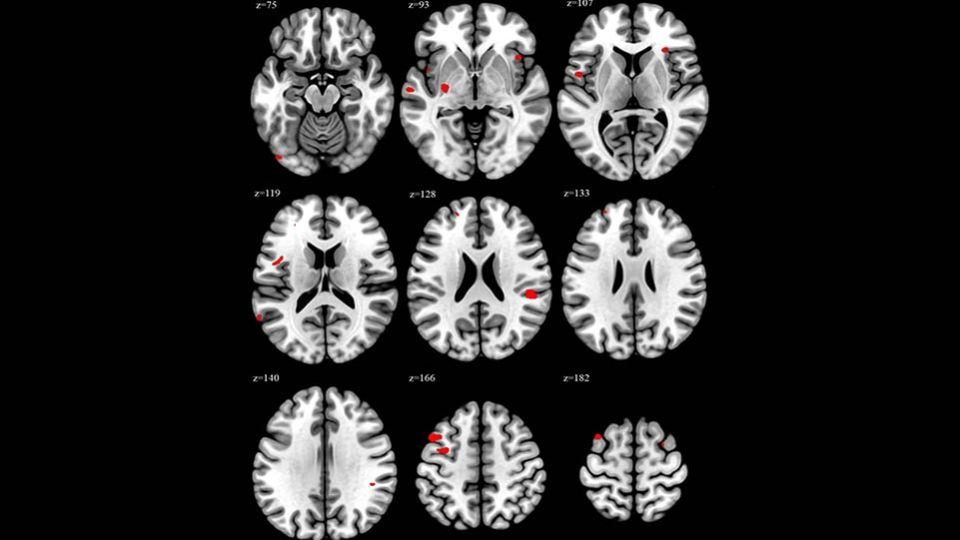May 16, 2025
SEOUL – A new brain imaging study from South Korea suggests that working over 52 hours a week may cause structural changes in the brain, potentially affecting how people think, manage emotions, and handle stress.
In a pilot study published Tuesday in the international medical journal Occupational and Environmental Medicine, scientists from Yonsei University and Chung-Ang University scanned the brains of 110 health care workers and found significant differences between those regularly working at or above Korea’s legal weekly limit of 52 hours and those working fewer hours.
South Korea’s labor law limits working hours in most jobs to 52 per week, combining a 40-hour standard week with up to 12 hours of overtime.
The overworked group of 32 individuals showed a 19 percent increase in volume in the left caudal middle frontal gyrus compared with the non-overworked group. This brain region is associated with attention, working memory, and complex decision-making. In total, 17 areas showed greater volume in those working longer hours, including regions “associated with executive function and emotional regulation.”
“This study provides preliminary evidence that overwork is associated with structural brain changes, particularly in regions linked to cognition and emotion,” the researchers wrote. “These findings provide novel neurobiological evidence linking prolonged working hours to structural brain changes.”
However, the researchers caution against drawing firm conclusions. The reseach was a cross-sectional study, meaning it looked at conditions at a specific point of time, rather tan changes over time. For this reason, they notes that it was unclear whether these brain changes are the result of long work hours or a pre-existing trait among people inclined to work more.
“The observed associations may be influenced by unmeasured confounders or pre-existing differences rather than a direct effect of prolonged working hours,” they added in the paper.
The findings come amid South Korea approaches a snap presidential election on June 3, where working-hour reform is emerging as a major campaign issue. Frontrunner Lee Jae-myung of the Democratic Party has pledged to reduce actual labor time by transitioning toward a 4.5-day workweek.
His opponent, Kim Moon-soo of the People Power Party, supports flexible hours that keep the 40-hour baseline but allow extended work early in the week for earlier finishes on Fridays. Under his plan, employees would work one extra hour from Monday to Thursday, allowing them to leave work four hours earlier on Friday.
Kim has also floated loosening enforcement of the current 52-hour cap to accommodate business needs.
South Koreans are known for working noticeably more than their peers in other developed nations. OECD’s 2022 data shows Korea’s average is 122 hours higher than the OECD average of 1,752 hours, equivalent to nearly 15 extra full workdays each year.


